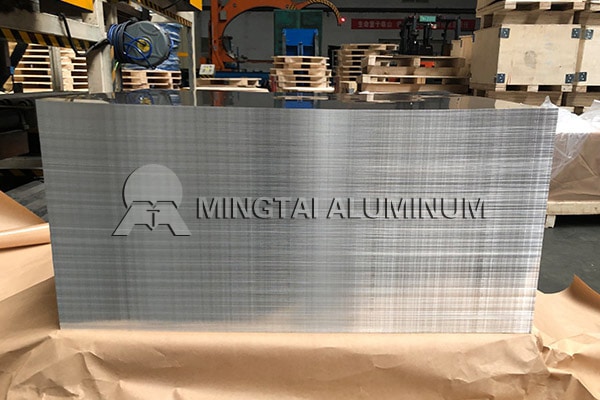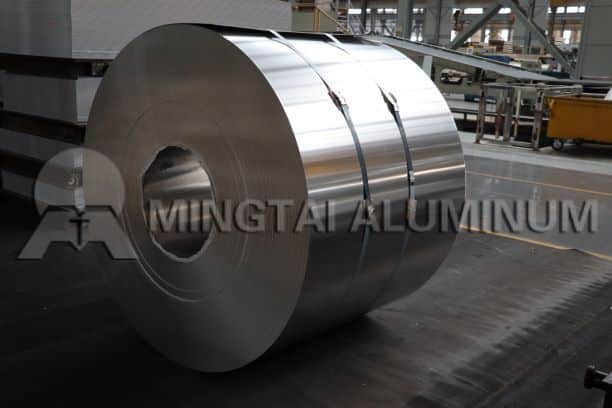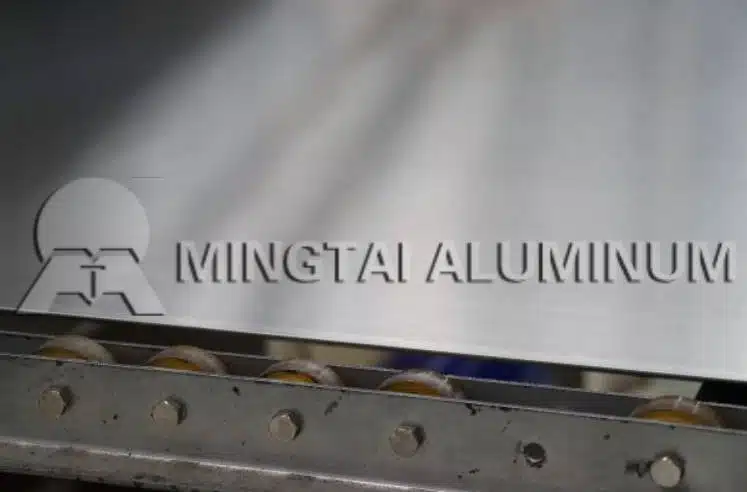
In marine engineering, picking the right materials is key to making things last, stay safe, and save money. Aluminum alloys are a top choice for building ships and offshore structures. They’re strong, light, and easy to work with. Among these, 5086 aluminum sheets shine for marine use. Their special mix of features makes them great for handling saltwater and tough conditions.
What’s in 5086 Aluminum Sheets?
Main Ingredients in 5086 Aluminum
The big player in 5086 aluminum is magnesium. 3.0%-4.5% of magnesium is added to 5086 aluminum plate, which enable it to have high strength. This magnesium boosts both strength and rust resistance. Smaller amounts of manganese, iron, silicon, and chromium help keep it stable and strong.
Unlike some alloys like 6061, it’s not strengthened by heat. Instead, it gets tougher through cold working or strain hardening. This makes it perfect for jobs needing steady strength even after welding or shaping.
Strength for Marine Use
5086 aluminum sheets have awesome features for marine settings. 5086 aluminum sheet has high strength capacity than 5052 and 5083 aluminum sheet, making it great for heavy-duty ship parts. It stays strong in different forms like H32, H34, H112, and H116.
Its decent strength and flexibility let it handle impacts without breaking. This is super important in rough seas.
Rust Resistance in Marine Settings
How 5086 Fights Saltwater Rust
One big reason to use 5086 aluminum sheets is their amazing resistance to saltwater rust. 5086 aluminum sheet is used in occasions that require high corrosion resistance, good weldability and medium strength, such as ships. Magnesium helps form a protective layer when it meets air and water. This layer stops further rust or pitting.
Since it doesn’t need extra coatings to fight saltwater damage, it saves money on upkeep over a ship’s life.
Why Magnesium Helps
Magnesium doesn’t just make the alloy stronger. It also protects against rust in salty, wet conditions. 3.0%-4.5% of magnesium is added to 5086 aluminum plate, which helps it stand up to saltwater for a long time without wearing out.
This makes it a top pick for ship hulls and parts and other cases that get wet a lot.
Toughness in Harsh Conditions
Strength and Wear Resistance
Ships face constant stress from waves, wind, engine vibrations, and shifting cargo. Strength and wear resistance matter a lot. Heat treatment does not strongly affect the strength, so 5086 aluminum plate can be readily welded and retain most of its mechanical strength. This keeps it solid even after welding or bending, perfect for the ups and downs at sea.
Its resistance to wear stops tiny cracks from growing under repeated stress. This keeps structures solid for years.
Handles Temperature and Pressure Changes
Marine settings can have wild temperature swings. Think hot decks in the tropics or freezing water below. Pressure changes happen too, at different depths or heights. Since 5086 isn’t heat-treated, it stays steady in these conditions without warping or weakening.
It also resists stress from expanding and shrinking with temperature changes. This prevents weak spots over time.
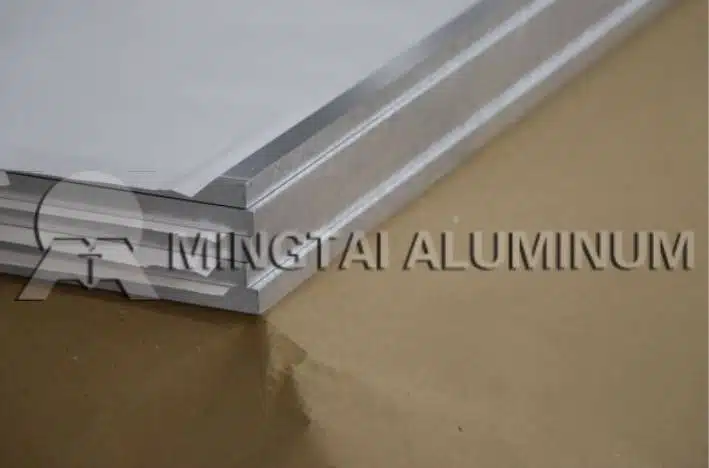
Easy to Weld and Shape
Simple Welding and Joining
In shipbuilding, saving time means saving money. Heat treatment does not strongly affect the strength, so 5086 aluminum plate can be readily welded. It works well with common welding methods like TIG or MIG.
It keeps most of its strength after welding. This is a big plus over other metals that get weaker in welded spots.
Easy to Shape for Marine Parts
Besides welding, 5086 is great for shaping into complex parts like curved hulls or detailed deck fittings. It’s not too hard but still flexible. This makes it easy to roll, bend, stamp, or extrude without cracking.
It’s versatile for both big factory runs and custom marine projects.
Light Weight and Fuel Savings
Lighter Than Other Metals
Lighter ships use less fuel. Compared to steel, 5086 aluminum saves a ton of weight while staying just as strong. Typical productsships benefit significantly from this lightweight advantage by reducing displacement loads—leading to increased speed capability or higher cargo capacity depending on design priorities.
This also makes it easier to handle during building, like lifting panels or moving materials around shipyards.
Boosts Ship Performance
A lighter ship moves through water with less drag. This means the engine works less and burns less fuel. Over time, these savings add up to big bucks. Plus, it helps the environment by cutting emissions on every trip.
Uses of 5086 Aluminum Sheets in Marine Work
Building Ship Hulls and Structures
Hulls need materials that can take hits and last in water. 5086 aluminum plate is also a marine aluminum alloy plate with high application in shipbuilding. Its rust resistance, weldability, shapability, and strength make it perfect for hull plating. It stays reliable no matter the conditions.
It’s used in everything from fishing boats to patrol ships to fancy yachts.
Used in Decks, Superstructures, and Fittings
Decks need materials that don’t slip and can handle salt spray. Superstructures need light but strong panels. Fittings need precise shapes. 5086 is great for all these because of its awesome features.
Recently, more than 60 tons of 5086 marine aluminum plates will be sent to Brazil; showing how much it’s needed in shipbuilding around the world.
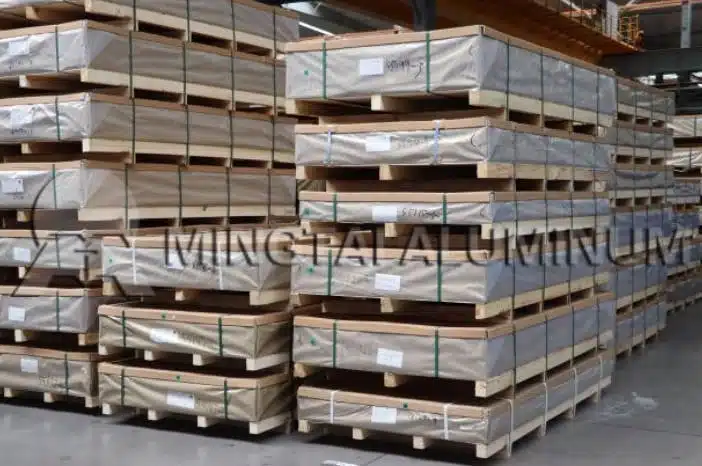
For anyone building boats or big ships, 5086 aluminum sheets are a no-brainer. They resist rust, stay strong, are easy to work with, and save weight. This leads to lower costs and better performance at sea.
To ensure quality supply backed by advanced production capabilities, MINGTAI ALUMINUM manufacturer introduces six-roller cold rolling mill equipment to produce ultra-wide and ultra-thick 5086 aluminum sheet products, sold directly by the manufacturer and customized on demand. For those looking for trusted sourcing, contact us now!.
FAQ
Q: Why is corrosion resistance so important for marine environments?
A: Saltwater can eat away at materials fast. 5086 aluminum sheet is used in occasions that require high corrosion resistance, good weldability and medium strength, such as ships. Its magnesium content creates a protective layer that stops rust and pitting, so parts like hulls last longer without extra coatings.
Q: How strong are 5086 aluminum sheets for shipbuilding?
A: They’re stronger than other alloys like 5052 or 5083. 5086 aluminum sheet has high strength capacity than 5052 and 5083 aluminum sheet, making it great for heavy-duty parts like ship hulls. They also handle impacts and stress from waves or cargo without cracking.
Q: Can 5086 aluminum sheets be welded easily?
A: Yes! They weld well with common methods like TIG or MIG. Heat treatment does not strongly affect the strength, so 5086 aluminum.

